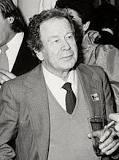
Fernando Claudín Pontes (Zaragoza, 1913 - Madrid, May 16, 1990) was a Spanish politician, leader of the Communist Party of Spain (PCE).
Architecture student during the Second Republic, he joined the Communist Youth in 1933. He actively participated in the process of unification between them and the Socialist Youths, which led to the formation of the Unified Socialist Youths (JSU) on April 1, 1936. Militant of the PCE from the Civil War, he was a close collaborator of Santiago Carrillo in the Madrid Defense Board and was exiled after the defeat in 1939 in Mexico. There he would be part of the PCE Secretariat with Carrillo, Joan Comorera, Pedro Checa and Antonio Mije, under the direction of Vicente Uribe.
In November 1947 he was, together with Uribe, responsible for the internal purification process of the Party. In 1954, along with Carrillo, he struggles for leadership before Dolores Ibárruri and Uribe, participating in what will be outlined as the new national reconciliation policy subsequently advocated by the PCE. In February 1956 he attended the XX Congress of the CPSU in which the new line of de-Stalinization in the Soviet Union approved by Nikita Khrushchev was approved. In April and May of that same year a plenary session of the Political Bureau of the PCE is held, in which the above differences are resolved. Pasionaria redirects his position and pacts with the young people, dismissing Vicente Uribe and ascending Carrillo to the maximum leadership of the Party, standing behind him Claudín. After the VI Congress of the PCE, held in 1960, Claudín is elected member of the Central Committee and its governing bodies: the Executive Committee and the Secretariat. The latter becomes formed by Carrillo as general secretary, Claudín, Ignacio Gallego, Antonio Mije and Eduardo García.




